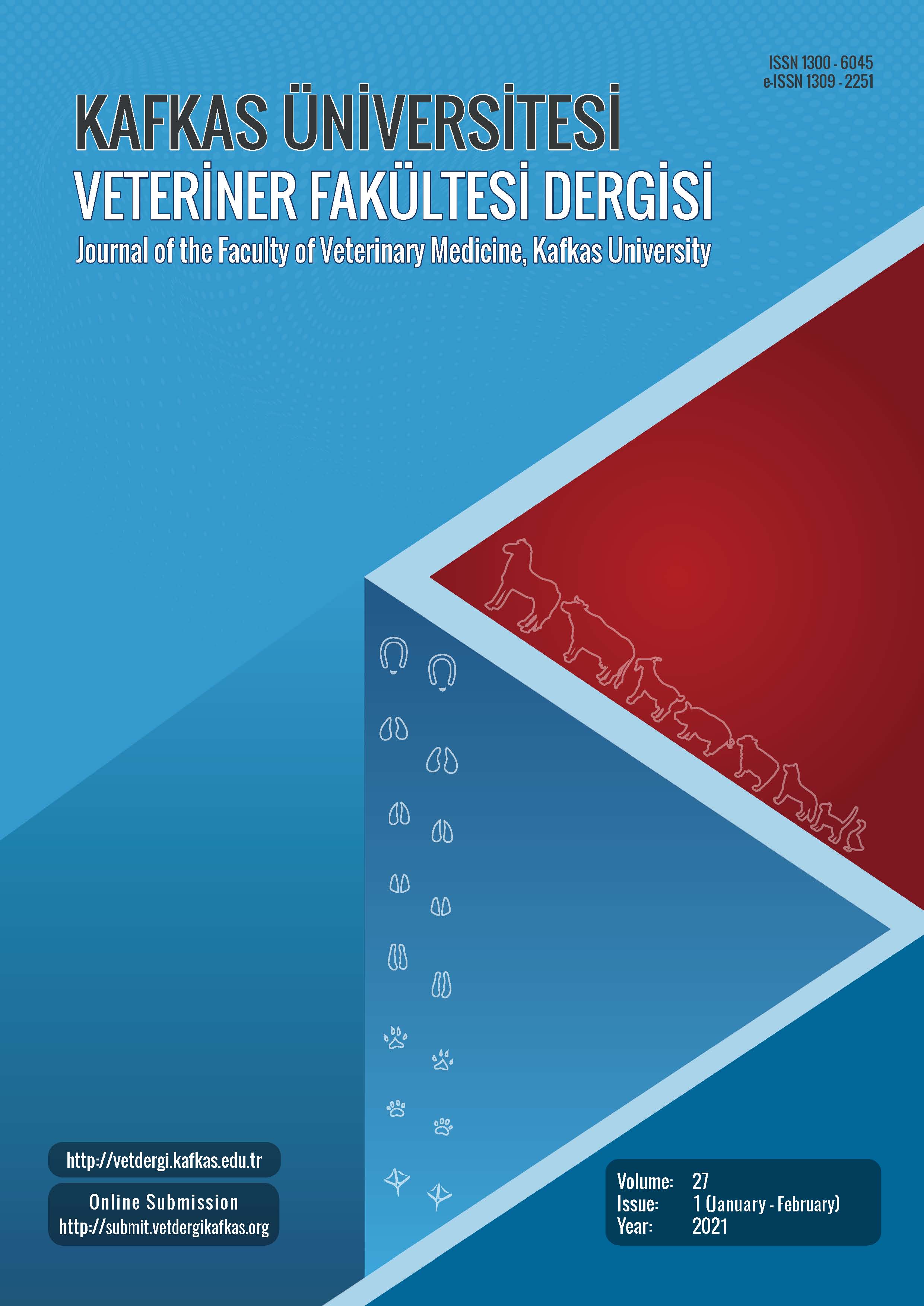
This journal is licensed under a Creative Commons Attribution-NonCommercial 4.0 International License
Kafkas Üniversitesi Veteriner Fakültesi Dergisi
2021 , Vol 27 , Issue 1
Effects of Kefir on Blood Parameters and Intestinal Microflora in Rats: An Experimental Study
1Department of Animal Nutrition and Nutritional Disease, Faculty of Veterinary Medicine, Aydın Adnan Menderes University, TR-09016 Aydın - TURKEY2Department of Microbiology, Faculty of Veterinary Medicine, Hatay Mustafa Kemal University, TR-31040 Hatay - TURKEY
3Department of Animal Nutrition and Nutritional Disease, Faculty of Veterinary Medicine, Ankara University, TR-06110 Ankara - TURKEY
4Department of Microbiology, Faculty of Medicine, Hatay Mustafa Kemal University, TR-31060 Hatay - TURKEY DOI : 10.9775/kvfd.2020.24855 A probiotic product of kefir is widely consumed by human beings. The purpose of this research was to investigate the eff ects of kefir on blood parameters and intestinal fl ora in rats. A total of 24 female rats were used in this study. During 35 days of experimental period, rats were fed with a commercial diet and water was provided ad libitum. Kefir was given at the levels of 10 mL/kg, 20 ml/kg and 30 mL/kg with oral gavage to the first, second and third treatment groups, respectively. Kefir was not given to the control group. The number of yeast was found to be 1.65x107 and the number of lactobacilli was found to be 4x108 in kefir. At the end of the experiment, blood samples were taken from all rats. Blood plasma parameters and were investigated. The intestinal microfl ora was investigated by classical colony counting method. No diff erences were observed among the groups in total protein, albumin, uric acids, SGPT, SGOT, alkaline phosphatase and phosphorus in blood plasma. The plasma triglyceride and cholesterol levels in the second and third groups were lower than control group (P<0.05). No diff erences were observed in the intestinal pH levels among groups. Although total bacteria number of intestinal microfl ora was not diff erent in groups, the number of Enterobactericeae and coliform bacteria in the third group was lower than the other groups (P<0.001). The number of Lactobacilli and the yeast level in the intestinal contents were increased by the usage of kefir (P<0.001). It was concluded that positive eff ects of the kefir were observed in intestinal microfl ora with increasing the number of beneficial bacteria and decreasing harmful bacteria and therefore kefir has a positive eff ect on the health of the animals. Keywords : Kefir, Rat, Performance, Blood parameters, Intestinal microfl ora











